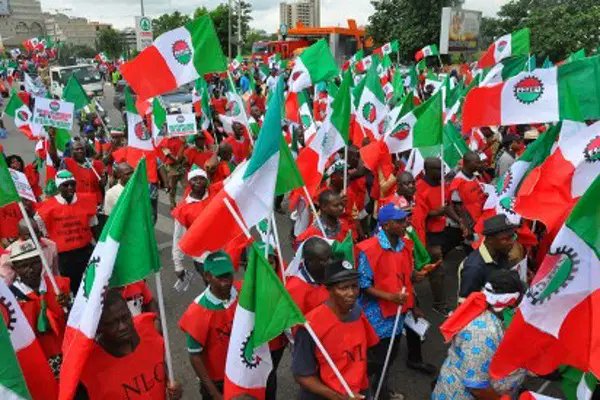
NLC Raises the Red Flag: Nationwide Mass Action Looms Over Poverty, Insecurity, and a Bleeding Economy

The country is simmering, and the Nigeria Labour Congress (NLC) has just turned up the heat.
In a move that could grind the nation to a halt, Nigeria’s largest labour force has issued a clear and final warning to the Federal Government — fix the worsening cost-of-living crisis, address insecurity, and stop the war on workers’ rights or face a full-blown nationwide mass action.
Today, following an intense emergency meeting of its Central Working Committee (CWC) in Abeokuta, Ogun State, the NLC didn't mince words. It described the Nigerian situation as no longer tenable, no longer bearable, and no longer ignorable.
The union declared that the government’s silence in the face of extreme hunger, deepening poverty, surging inflation, and violent insecurity is nothing short of sabotage — a calculated assault on the Nigerian worker and the soul of the nation.
“The people are tired. Workers are broken. And we are no longer willing to be silent spectators,” a top NLC official told reporters. “This is a coordinated economic war against the Nigerian people. We will respond.”
With the price of fuel now hovering around ₦1,000 per litre, basic food staples out of reach for millions, and transportation costs tripling across states, the average Nigerian is on the brink.
Add to that the epidemic of insecurity spreading like wildfire — from kidnappings in the North to armed robberies in the South and banditry in the Middle Belt — and it’s clear: Nigeria is in a state of socio-economic emergency. But while citizens have been shouting from the trenches, the NLC believes those at the top are deaf by design.
The tone of the NLC’s latest communiqué was different. It was not another appeal. It was not another memorandum. It was a war cry — loud, urgent, and fueled by rage.
The union is now mobilizing all its affiliate groups across the 36 states and the FCT, calling for an unprecedented coordinated shutdown of economic activity unless government intervention comes swiftly and sincerely. Mass protests. Industrial strikes. National resistance.
And the list of grievances is long.
From the failed promises tied to the removal of fuel subsidy, to the unimplemented new minimum wage, to what it describes as “deliberate suppression of workers’ voices and freedoms,” the NLC says the Tinubu-led administration has failed on all labour fronts. “No food, no electricity, no security, no jobs, no housing. Yet, they want us to be quiet while they fly private jets and sign billion-naira budgets. We will not,” the union declared.
The Presidency, on its part, has tried to downplay the threat, with the Ministry of Labour and Employment issuing a vague statement urging dialogue. But on the ground, there is panic. Public hospitals, schools, airports, and power stations are bracing for impact. The NLC's last national strike brought major cities to their knees for 48 hours — this time, it could last indefinitely.
The economic implications are huge. Already, businesses across Lagos, Kano, and Port Harcourt are sounding alarms over potential supply chain disruptions. The stock market has shown signs of nervousness.
Transport unions are said to be holding emergency meetings. And on X (formerly Twitter), hashtags like #NLCStrike, #EnoughIsEnough, and #NigeriansDeserveBetter are trending — a digital protest that mirrors the rage boiling offline.
But the NLC insists this is not just about wages or fuel. It is about dignity. It is about survival. “How can we be expected to work in a country where our lives are constantly under threat, where salaries can no longer buy food, and where the government refuses to listen?” asked a spokesperson.
It’s a question millions of Nigerians are asking — in traffic jams, in market queues, at bus stops, and on empty dinner tables.
The government may still have a window to de-escalate the tension, but it is narrowing by the hour.
What comes next could mark a defining moment in Nigeria’s democratic and labour history — a showdown between a struggling people and a political elite that has, according to the NLC, lost its moral compass.
If nothing is done, the streets will do something. And when they do, it won’t be business as usual.
Stay locked on Busterblog.com for live updates as Nigeria stands on the edge of one of its most consequential mass actions in modern history.


